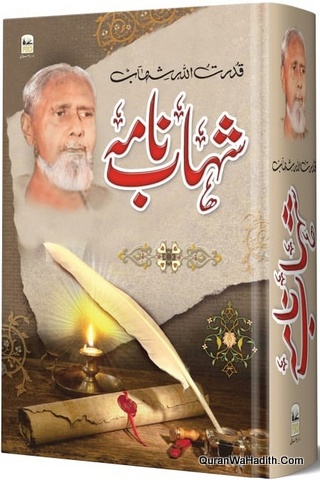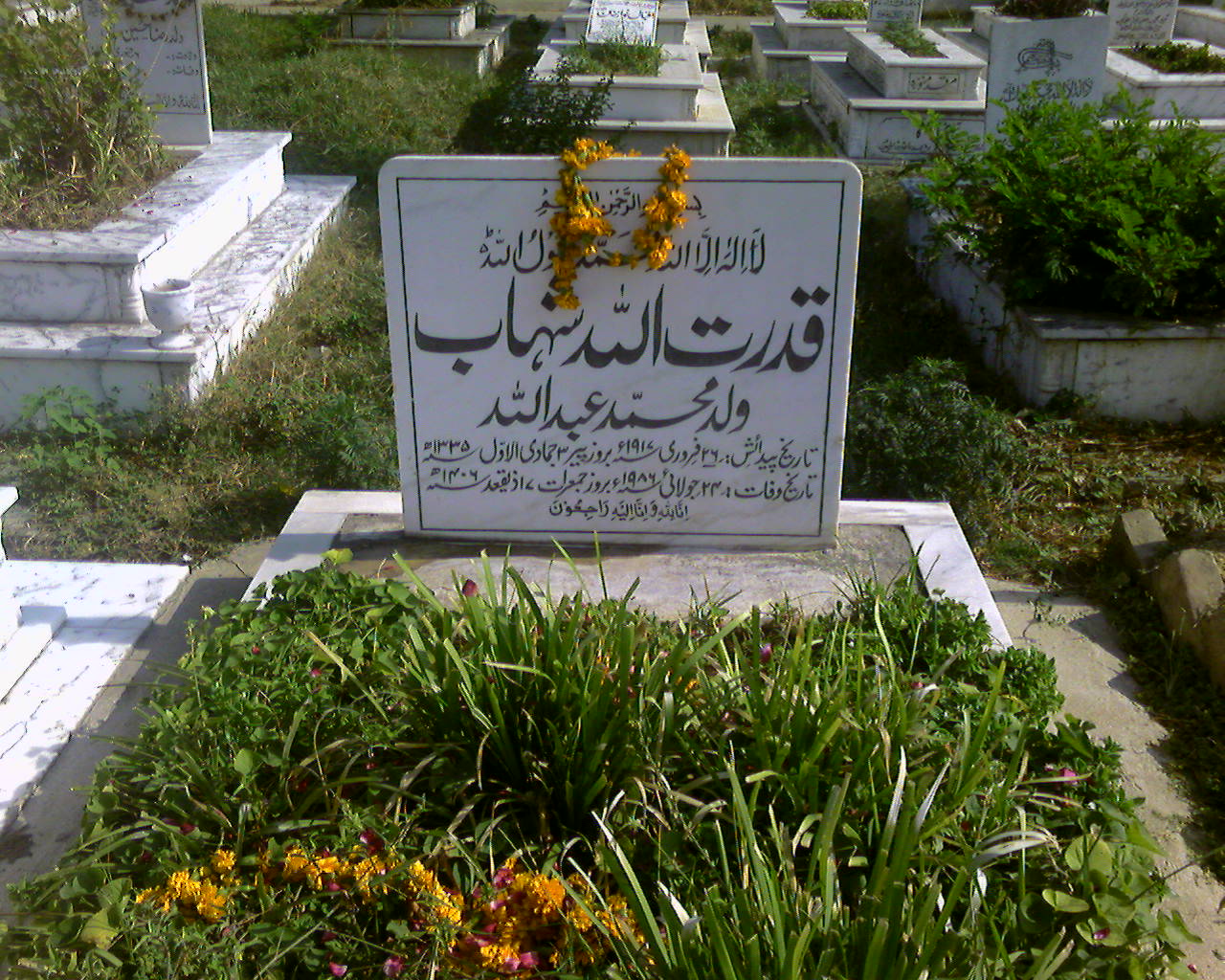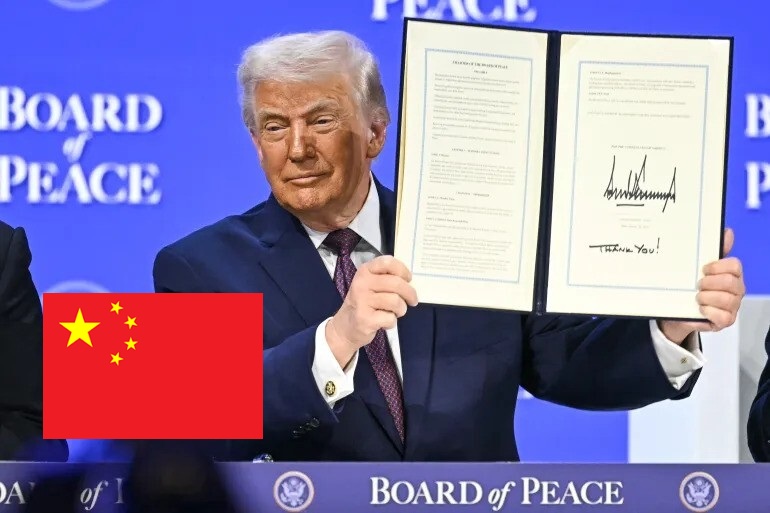24th July 1984 marks the solemn day when Pakistan lost most revered literary and intellectual personality — Qudratullah Shahab. A visionary whose legacy transcends bureaucracy and literature, Shahab left behind a timeless treasure in the form of Shahab Nama, his celebrated autobiography that continues to inspire, provoke, and spiritually awaken generations.
In the annals of Pakistan’s intellectual and bureaucratic history, Qudratullah Shahab occupies a distinct position—not only as an accomplished civil servant and literary icon but also as a thinker whose nuanced understanding of power, governance, and ethics remains deeply relevant in today’s complex geopolitical environment. While Shahab Nama remains his most celebrated work, it’s his visionary insights, subtle yet sharp observations about global affairs, and firm belief in Pakistan’s sovereignty and moral strength, that make him profoundly applicable to contemporary discussions on Pakistan’s relations with China, Russia, and India.
Shahab’s Worldview: Between East and West

Shahab lived through a period when Pakistan was defining its place in a bipolar world. From the British Raj to the Cold War era, he experienced how global powers influenced domestic policies and sovereignty. As a senior bureaucrat during the early years of Pakistan, Shahab observed the inner mechanics of how foreign diplomacy shaped the country’s trajectory.
Though Shahab Nama is not a book of foreign policy, his writing contains numerous reflections on the colonial hangover, blind alignment with Western powers, and the need for independent policy-making. He advocated a self-reliant, morally grounded Pakistan, which becomes especially relevant when discussing relations with China, Russia, and India today.
China: A Strategic Friend with Cultural Distance
Pakistan’s relationship with China is often hailed as an “all-weather friendship.” During Shahab’s time, the foundation of this relationship was still forming, and the idea of mutual cooperation between two ideologically different states was relatively new.
Shahab might have appreciated China’s non-intrusive strategic approach and focus on infrastructure and economic development, something he personally believed Pakistan needed. He often lamented the inefficiency of Pakistan’s development planning, and one can imagine that he would welcome modern initiatives like CPEC (China–Pakistan Economic Corridor) as long as they did not compromise Pakistan’s autonomy.
However, as a man of letters, he may also have cautioned against a purely transactional relationship. His writings suggest a belief in cultural and ideological connectivity between nations. The lack of deep people-to-people contact or cultural exchange with China might be seen by Shahab as a missed opportunity. He would likely call for a more balanced relationship—one rooted not only in economics but also in mutual intellectual understanding.
Russia: From Caution to Opportunity
Shahab’s time in civil service coincided with Pakistan’s growing tilt toward the United States, and missed chances with the Soviet Union. In Shahab Nama, though he doesn’t elaborate on Pakistan-Russia relations, his critiques of blindly following American policy indirectly highlight a missed diplomatic balance.
Today, Pakistan’s pivot to Russia, especially in defense and energy sectors, reflects a realignment in global power equations. Shahab, as a bureaucrat who valued non-alignment and moral sovereignty, would have perhaps encouraged such diversification in partnerships. His sharp eye for geopolitical games would recognize the strategic potential of a Pakistan-Russia energy corridor, especially with a weakening Western bloc and the rise of multipolar diplomacy.
He would also be among the few to appreciate Russia’s cultural strength—its literature, music, and intellectual traditions—and might have encouraged greater engagement in academic and literary exchanges. As a man who himself bridged bureaucracy and literature, he would see value in soft diplomacy with Russia.
India: The Most Emotional Equation
Perhaps no other relationship is as emotionally charged, historically complex, and strategically delicate for Pakistan as its relationship with India. Shahab, having witnessed the trauma of Partition, was no stranger to the wounds of the subcontinent.
In Shahab Nama, his references to Hindu-Muslim tensions, communal riots, and the moral collapse of leadership during 1947 reveal a deeply humanist perspective. He doesn’t write with hate—but with pain. He recognizes the injustice, bloodshed, and betrayal but does not advocate perpetual enmity.
In today’s climate of hostility between the two nuclear neighbors, his wisdom suggests a mature, realistic engagement. He would likely call for dialogue, not appeasement; clarity, not chaos. He would certainly condemn extremism, media-fueled hatred, and political posturing, on both sides.
Importantly, Shahab would argue that while national sovereignty is non-negotiable, peace in the region is in Pakistan’s own interest—economically, morally, and strategically. His long-term vision would prioritize regional cooperation, people-to-people contact, and cultural understanding, rather than militaristic brinkmanship.
A Morally Anchored Foreign Policy

One of his most unique qualities was his moral compass. Whether dealing with power corridors in Islamabad or personal spiritual quests, he consistently returned to the idea that decisions must be guided by ethics, not just strategy.
Applied to modern foreign policy, Shahab’s philosophy would advocate:
-
Non-alignment without isolation
-
Trade without dependence
-
Friendship without submission
-
Dialogue without weakness
His belief in internal reform—bureaucratic transparency, education, meritocracy—would be his starting point for any international ambition. Shahab would argue that no external alignment, whether with China, Russia, or America, can compensate for internal disarray.
A Case for Strategic Sovereignty
If one were to distill a “Shahab Doctrine” from his writings, it would be this:
“Align your foreign policy with your values, not just your interests. Be firm, be fair, be free.”
This doctrine could serve Pakistan well in its current dealings with global powers:
-
With China, seek deeper cultural understanding alongside trade.
-
With Russia, forge long-term energy and strategic partnerships based on mutual respect.
-
With India, engage with open eyes but an open heart too—recognizing both the risks and the responsibilities.
Why Shahab Still Matters ?
Today on his 39th death anniversary, we remember not only his exceptional career as a civil servant but also his deep spiritual insight, unwavering integrity, and his unwavering love for Pakistan. His life’s work remains a beacon for those who seek purpose, patriotism, and personal transformation.
In an age of shifting alliances, propaganda-driven diplomacy, and ideological confusion, the clarity of vision that Qudratullah Shahab offers is rare. His words remind us that nations, like individuals, need soul, integrity, and self-respect to succeed.
As Pakistan navigates its complex relationships with China, Russia, and India, it may not find specific policy prescriptions in Shahab Nama, but it will certainly find principles—of dignity, strategic balance, cultural empathy, and moral courage.
These, in today’s world of fleeting interests, are far more valuable.
Mr. Sabahuddin Qazi is Editor-in-chief of the Press Network of Pakistan.



